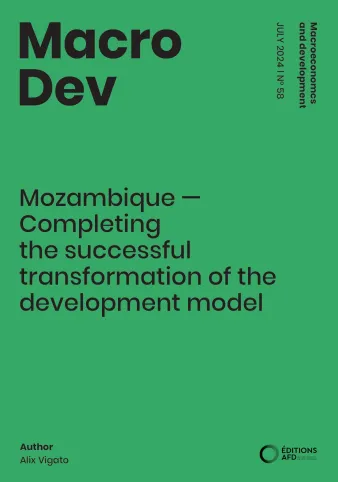Share the page
Mozambique — Completing the successful transformation of the development model
Published on

Mozambique, a country in southern Africa that stretches for 2,800 km along the Indian Ocean, is the fifth-poorest state on the planet, with alarming human development indicators. Despite having had robust economic growth for the last thirty years, this growth is largely due to the exploitation of raw materials with no, or only minimal, local processing. This results in an extractivist and extremely unequal development model. A fragile state that has been marked by decades of fighting and corruption scandals, Mozambique also appears to be one of the most vulnerable countries in the world to climate change. Nonetheless, the current trend is positive. In May 2022, the authorities agreed a financing program with the International Monetary Fund (IMF), marking the return of donors after six years of absence. In this context, Mozambique is benefiting from an influx of external financing, and ambitious budget reforms are being carried out, with initial results already tangible. Above all, exploiting the vast gas reserves could enable a real economic boom in the medium term, since the country potentially has the tenth-largest reserves of natural gas in the world off the coast of Cabo Delgado Province in the far north. Although these gas megaprojects have been threatened and delayed by recurrent Islamist attacks in the region, they would result in a total economic benefit of around USD 300 billion by 2050, according to the World Bank, equivalent to 15 times the country’s current GDP. The arrival of a huge gas windfall represents a historic opportunity for Mozambique’s economy, which could lead to significant growth. While the prospect has given rise to great expectations among the population, the path to harmonious socioeconomic development still seems fraught with difficulties.With a general election on the horizon for fall 2024, the challenge for the future president will be to complete the successful transformation of the country’s development model.
Useful Information
-
Authors
-
Edition
-
58
-
Number of pages
-
16
-
ISSN
-
2116-4363
-
Collection
-
Macrodev
